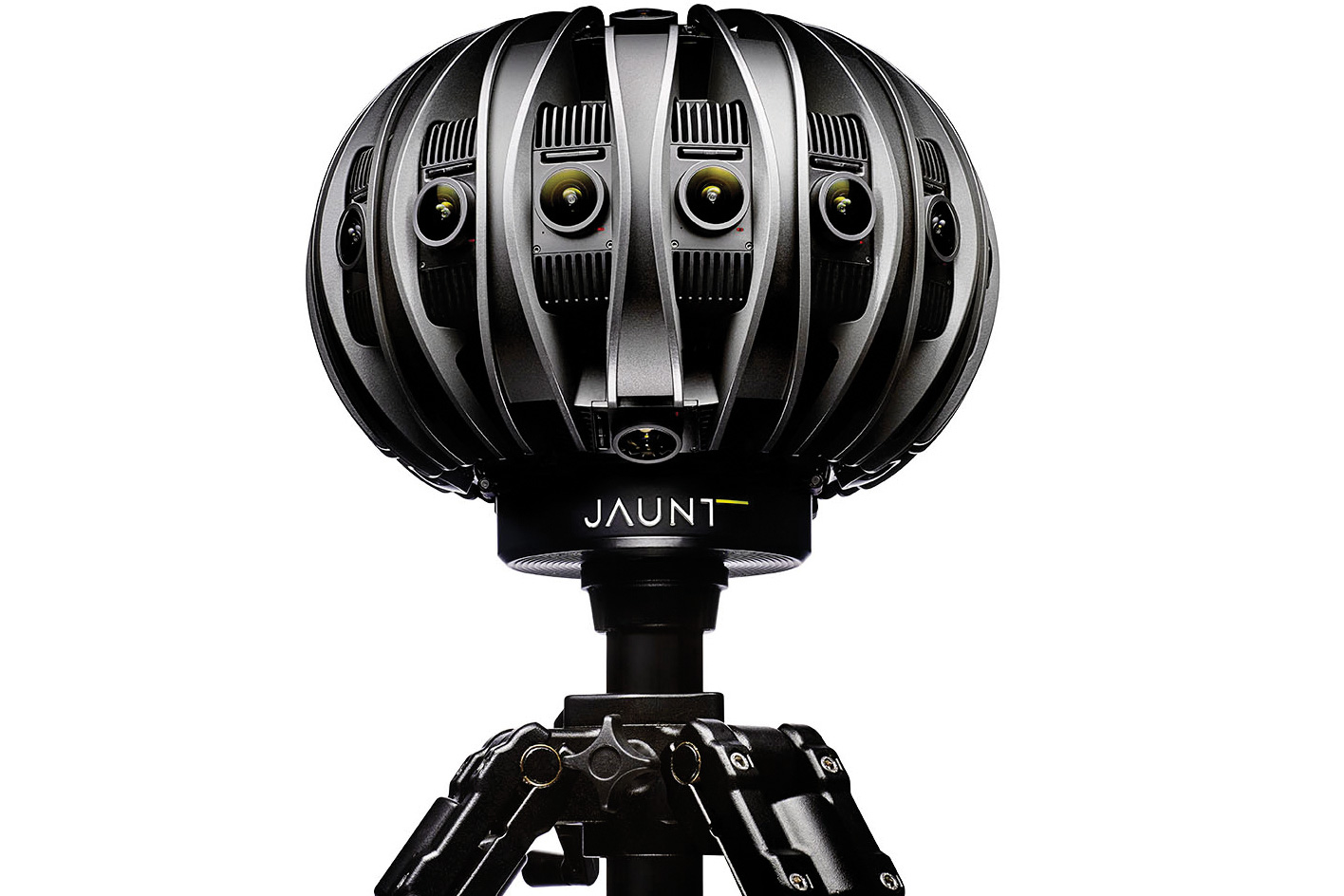Take a look around; virtual reality lets you see the entire space. George Kliavkoff, a member of the University of Virginia School of Law’s Class of 1993, can see the space, too – because he’s helping to pioneer it. In September, he was named CEO of Jaunt VR, a media company headquartered in Palo Alto, California that has blended proprietary technology (including the Jaunt ONE camera) and studio facilities in Santa Monica to position itself as the industry leader in cinematic virtual reality content.
“Our focus is to use the virtual reality medium, which allows you to create a much more immersive and emotional experience with the viewer, to tell great stories,” he said. “I think the desire that we see for the consumption of virtual reality and the desire we see from producers to get into the production of virtual reality is kind of unlimited.”

Jaunt ONE, the first professional-grade stereographic cinematic VR camera built from the ground up, features custom optics and high-quality, 360-degree capture. (Courtesy Jaunt VR)
Kliavkoff was hired to manage the global scale-up of the three-year-old company, which added a foothold in China just a few months prior to his arrival through a joint venture with Shanghai Media Group and China Media Capital, two of China’s largest media companies.
“The truth is, the market is already growing quicker in China than it is in many other territories,” he said.
In December, the company rolled out a Jaunt VR smartphone app, putting the power of virtual reality directly into the hands of both enthusiasts and first-time viewers. The app connects with users of Google’s Daydream-ready phones, virtual reality phones that come with headsets with access to Jaunt VR’s content.
From Sure Thing to Startup
Kliavkoff previously served as co-president and group head of Hearst Entertainment, the largest and most profitable privately held media company in the United States. While the move from a sure thing to a startup (albeit a well-funded one, with more than $100 million invested) may seem like a leap given the newness of the medium – for example, there has yet to be a feature-length movie released for VR – Kliavkoff said it’s a “career theme” of his to take calculated risks on video technology.

While at NBC, he helped launch Hulu. At Major League Baseball, he was an early member of the Advanced Media Group, which delivers the sport’s digital content. He also recalled working for Real Networks, known for its RealPlayer, and “watching a ‘postage stamp’ on a screen with lots of buffering.”
Things have changed since then, he said, and will again.
Virtual Reality Is the New High-Definition
One reason Kliavkoff is certain of the future of virtual reality programming, which will include sports, travelogues, news coverage and any other content in which the viewer expects panoramic detail, he said, is the analogy he sees to high-definition video, which viewers eagerly adopted over time.

George Kliavkoff, CEO and president of Jaunt VR, is responsible for scaling the young company globally. (Courtesy Jaunt VR)
“What you found was when people experienced HD, for certain things like sports and movies, they said, ‘This is the only way I want to watch sports and movies,’” he said. “It’s that same slow back-and-forth between production and consumption, until you suddenly have a watershed moment.”
Jaunt VR already has a library of free content available on its website and mobile app, and works with industry partners such as ABC News and Disney, brands such as The North Face and Tastemade, and artists including Paul McCartney and Ray Lamontagne.
“It’s unclear what the breakout hit will be for video virtual reality, but my goal is making sure that Jaunt is the one that will produce it,” he said.
Kliavkoff dispelled the myth that virtual reality has to be a solitary experience confined to the home. Although the current boom is in gaming and a stereoscopic headset does provide the most immersive feel, he said, “Everyone who owns a smartphone already has virtual reality in their pocket.”
But for those who feel VR is too intimidating or not for them, Kliavkoff said don’t be afraid; try it.
“I think that’s how most people felt until they got a mobile clip of their grandchild and were able to watch it on their phone,” he said.
Media Contact
Article Information
January 6, 2017
/content/cinematic-quality-virtual-reality-brought-you-wahoo

